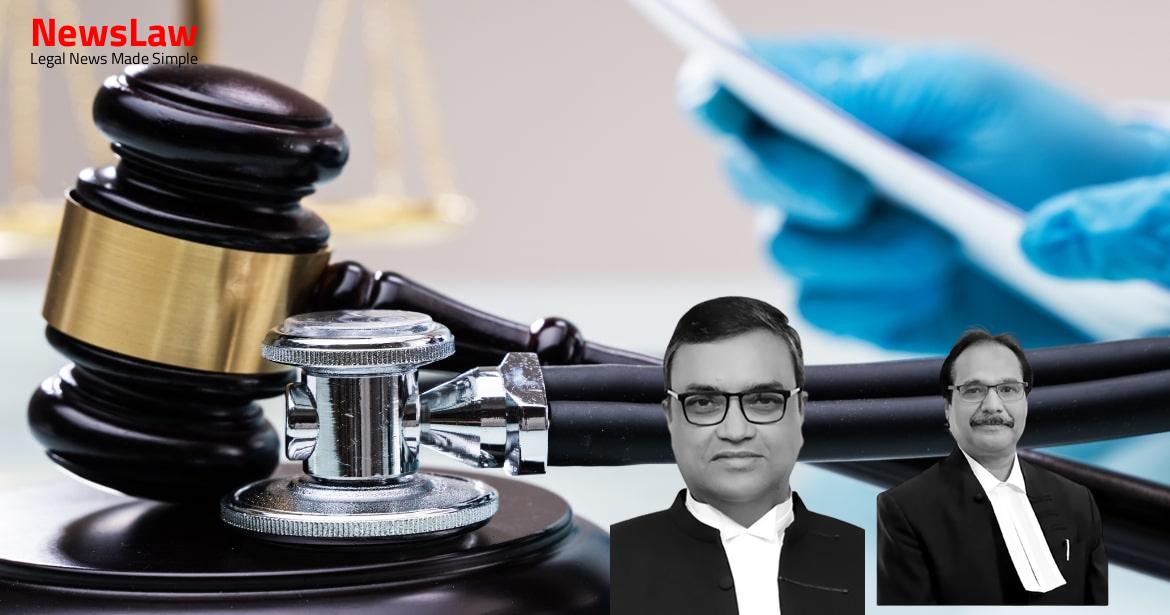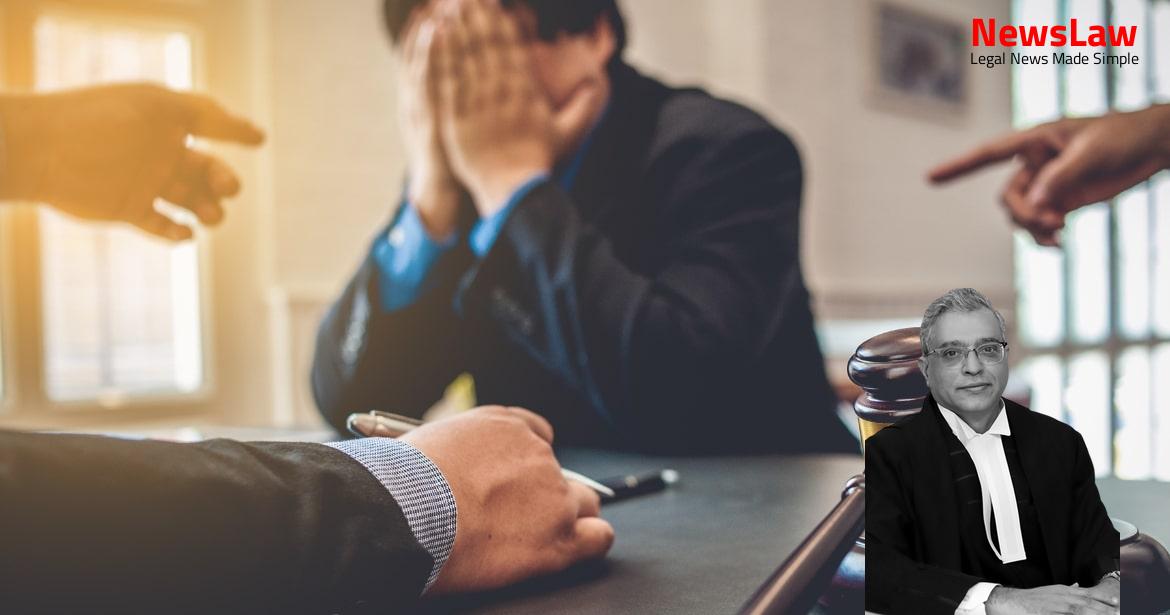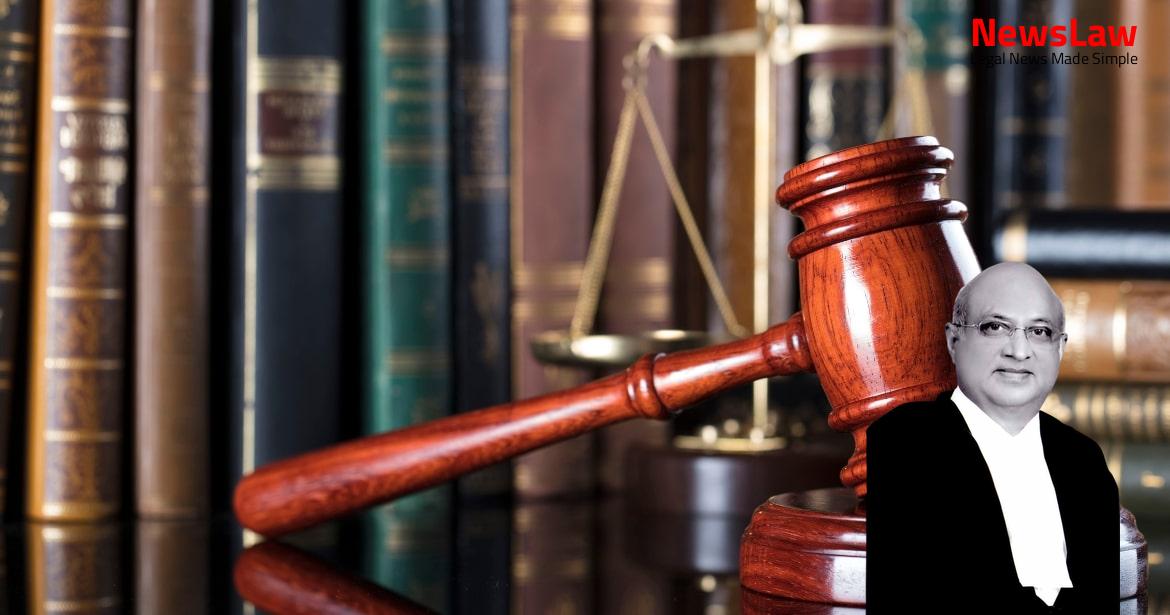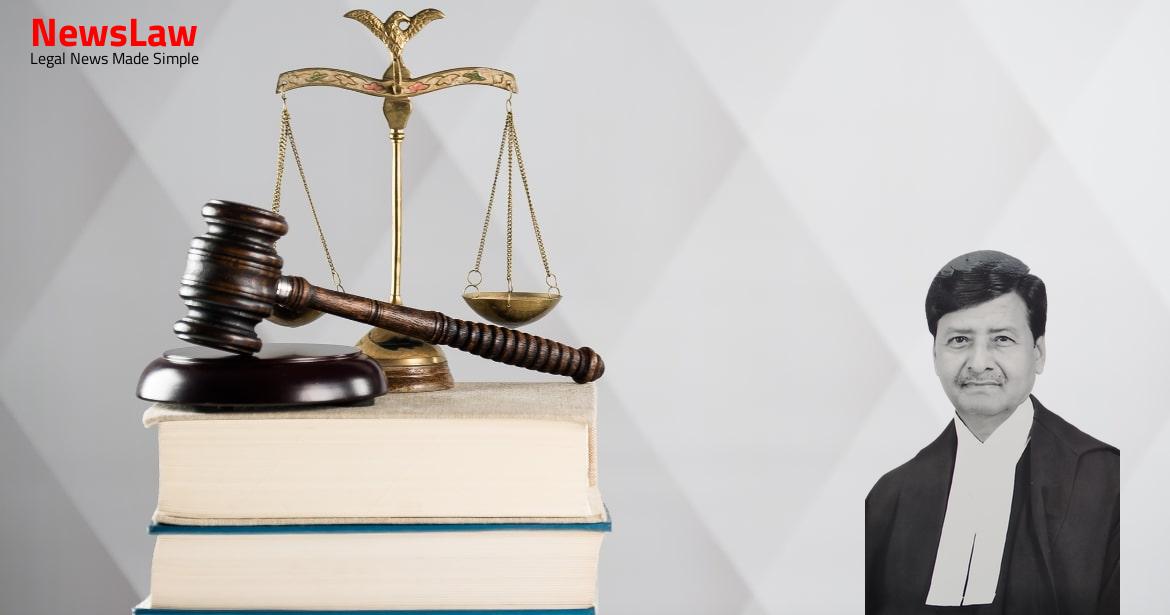The Interpolated Fixed Deposit Case has seen a significant development with the Supreme Court of India delivering a crucial decision. This case involved the accused Savitri Shyam and the respondent bank. The judgment provides clarity on key legal aspects related to self-incrimination in witness statements and the use of evidence under Section 132 of the Indian Evidence Act, 1872. Stay tuned to learn more about the implications of this landmark ruling.
Facts
- Accused Savitri Shyam moved application in 1998 for creating a Fixed Deposit of Rs. 10,00,000 for 3 years.
- Fixed Deposit was created with 2 separate deposits of Rs. 8.5 Lakhs and Rs. 1.5 Lakhs respectively.
- Appellant, working as Cashier, interpolated the Fixed Deposit documents changing tenure to 10 years and later to 15 years.
- Appellant admitted to changing tenure in witness statement at the bank.
- Interpolation and forgery were made in the bank ledger under the appellant’s initials.
- Appellant confessed to making interpolations and changes on the Fixed Deposit document.
- Appellant’s criminal revision petition was dismissed by the High Court.
- Trial court partially allowed the application by summoning the appellant.
- Application was rejected with respect to Rakesh Bharti.
- Trial court’s order was challenged before the High Court.
- Charges were framed against the appellant on 15.06.2023.
Also Read: Case of Appointment of a Junior Judge Advocate in Court Martial: Legal Implications
Arguments
- Mr. Vivek K. Tankha, senior counsel for the appellant, argued that the appellant should benefit under Section 132 of the Indian Evidence Act, 1872, and should not be held accountable for the statement made by him.
- The argument is that Section 132 of the Indian Evidence Act, 1872 can be exercised when there is a prima facie material giving rise to grave suspicion against the person regarding the commission of the offense.
- It was contended that the evidence on record does not establish a prima facie case against the appellant for summoning him as an accused under Section 319 of the Cr.P.C.
- The power under Section 319 of the Cr.P.C. should not be exercised in the absence of a prima facie case against the appellant.
- Argument made by Mr. Saurabh Mishra, learned senior counsel for the respondent bank.
- The appellant is accused based on the statement of PW-1/Narendra Singh Parmar during trial, not on the pre-summoning statement.
- Therefore, Section 132 of the Act is deemed inapplicable in this case as argued by the respondent.
- The pre-summoning stage statement is considered inadmissible in evidence, citing the precedent in Sashi Jena and Others v. Khadal Swain.
Also Read: Dismissal of Civil Appeal Due to Infructuous Nature
Analysis
- Section 132 of the Indian Evidence Act, 1872 provides immunity against self-incrimination.
- Witnesses are not excused from answering relevant questions on the ground that the answer may incriminate them.
- The proviso to Section 132 ensures that answers compelled from a witness cannot be used against them in criminal proceedings, except in cases of giving false evidence.
- The principle behind this provision is to encourage witnesses to come forward with evidence without fear of self-incrimination.
- The proviso is based on the Latin maxim ‘nemo tenetur prodere seipsum’ – no one is bound to criminate himself.
- The focus is on protecting witnesses from unnecessary harm or annoyance for providing evidence.
- The Court needs to consider whether a witness in a proceeding can be summoned under Section 319 of the Cr.P.C based on other material on record.
- The qualified privilege under the proviso to Section 132 of the Act does not grant complete immunity from prosecution to a person who has deposed as a witness and made statements incriminating himself.
- The Court can rely on evidence other than the statement of the witness when considering invoking Section 319 Cr.P.C.
- Initiating process under Section 319 Cr.P.C. against a witness who has incriminated himself during trial will be assessed based on whether only that incriminating statement formed the basis of the order.
- There must be additional, cogent material before the Trial Court apart from the statement of the witness to justify invoking Section 319 Cr.P.C.
- The qualified privilege under the proviso to Section 132 of the Act, in some cases, may prevent the court from obtaining essential information needed to arrive at the correct decision, potentially leading to a failure of justice.
- The proviso to Section 132 of the Act is an extension of the protection under Article 20(3) of the Constitution, ensuring that a witness cannot be compelled to incriminate themselves.
- The legislative history indicates that the purpose of the law is to secure evidence that otherwise could not have been obtained, but this evidence cannot be used in bringing the witness to trial.
- In R. Dinesh Kumar alias Deena (supra), a witness examined as PW-64 during trial was sought to be summoned by moving an application under Section 319 Cr.P.C.
- The Trial Court dismissed the application, and the High Court affirmed the dismissal order.
- Justice Muttusami Ayyar’s opinion in the matter of ‘The Queen vs Gopal Doss & Anr.’ was referred to in R. Dinesh Kumar alias Deena (supra).
- No prosecution can be launched against the maker of a statement falling within the sweep of Section 132 of the Act on the basis of an ‘answer’ given by a person while deposing as a ‘witness’ before a Court.
- The High Court held that PW-64 could be separately prosecuted for an offence under Section 120B of the Indian Penal Code, 1860 read with Section 302 of IPC if independent evidence other than the statement under Section 164 Cr.P.C. of PW-64 and his evidence in Sessions Case are available to prosecute him along with other accused.
- The policy under Section 132 of the Act appears to be to secure the evidence from whatever sources it is available for doing justice in a case brought before the court.
- Section 132 of the Act does not provide complete and unfettered immunity to a witness.
- If there is substantial evidence or material against a person proving his involvement, complete immunity does not apply.
- An influential person can misuse the legal system to shield themselves by being examined as a witness, even if evidence points to their complicity in the offense.
- R. Dinesh Kumar aias Deena case does not address or support complete immunity for witnesses.
- Prima facie material exists against the appellant for summoning him as an accused under Section 319 Cr.P.C.
- Witness PW-1/Narendra Singh Parmar stated during trial that the interpolations were made under the initials and signatures of the appellant.
Also Read: Committee-GFIL v. Libra Buildtech Private Limited & Ors.: Refund of Stamp Duty Case
Decision
- The criminal appeal has been dismissed.
- Contempt Petition (C) No. 508 of 2024 in Criminal Appeal No(s). 2764 of 2024 @ Special Leave Petition (Crl.) No. 3419 of 2024 is closed.
- The interim order passed in the Contempt Petition is vacated.
- The Contempt Petition is disposed of.
Case Title: RAGHUVEER SHARAN Vs. DISTRICT SAHAKARI KRISHI GRAMIN VIKAS BANK (2024 INSC 681)
Case Number: Crl.A. No.-002764-002764 – 2024



